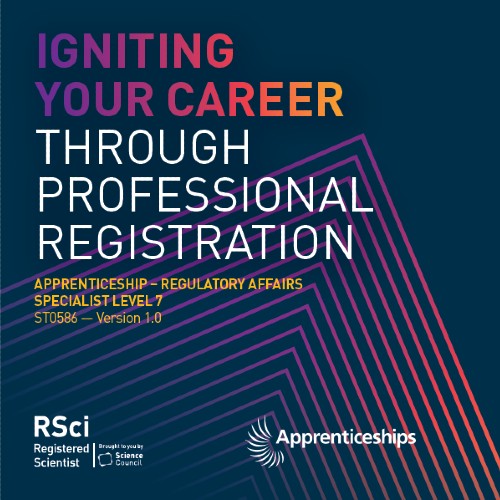 The skills gap in medicines and device regulatory affairs is leaving organisations short of staff at a time when there is more to do than ever before to get medicines and medical products to patients. TOPRA is supporting the profession to help fill this gap in several ways, including this apprenticeship.
The skills gap in medicines and device regulatory affairs is leaving organisations short of staff at a time when there is more to do than ever before to get medicines and medical products to patients. TOPRA is supporting the profession to help fill this gap in several ways, including this apprenticeship.
TOPRA facilitated a multi-stakeholder employer group to design the apprenticeship standard and supporting tools, and TOPRA is a registered training provider.
What is the apprenticeship?
An apprenticeship is a work-based training programme designed around the needs of employers, which can lead to nationally and internationally recognised qualifications.
The apprenticeship programme takes 30 months to complete and provides masters-level training (Level 7) in regulatory affairs. It requires apprentices to spend 20% of their time on regulatory training, with the other 80% spent on working and gaining experience. To start the apprenticeship, individuals must already have a job in an organisation that is willing to support them and can provide sufficient experience of working in regulatory affairs.

The training is based on the Apprenticeship Standard which sets out the knowledge, skills and behaviours an apprentice needs to develop over the course of the programme. The Regulatory Affairs Specialist Standard was created by professionals working in a variety of organisations covering pharmaceuticals and medical devices.
Apprentices complete assessments at the end of the apprenticeship to ensure they have developed the knowledge, skills and behaviours that the programme has set out to impart. They will also complete assessments during the training programme to help embed their training and to monitor their progress. On receipt of their Regulatory Affairs Specialist Level 7 apprenticeship certificates, the apprentices are eligible to apply for Registered Scientist status via the shortened route.
